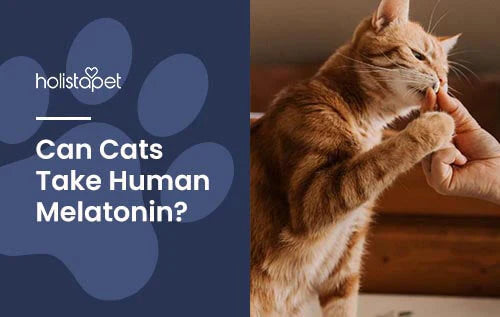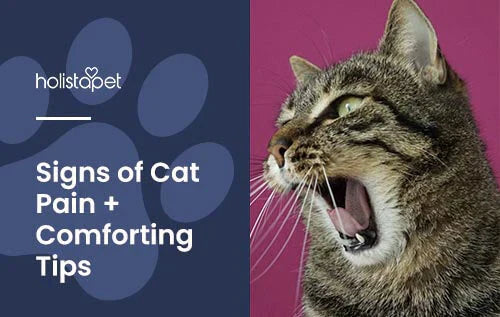Cats are pretty good at peeing where they're supposed to — until they're not! Whether they're peeing where they aren't supposed to, for more or less time than normal, or are marking in their home, it can be hard to pinpoint and solve inappropriate urination. While there are many ways to try and retrain cats' peeing habits, one easy way to help is with CBD oil for cats' peeing.
That's right, CBD can be great for pets, too! But how exactly does it work? Is it safe? And how much do you need for it to be successful? We'll cover all of these points and more in this article so that you can get down to the bottom of your cat's funny business and solve it. Before letting your cat piss you off too much, let us teach you more about how CBD oil can help!
Why Will Cats Pee Outside of the Litter Box?
There are many reasons why cats may pee outside their litter box. Cats' mothers teach them how to use litter boxes from a very early age, so when cats stop using them, they either decide to or it's because something is wrong.
Here are some common reasons why cats will stop using their box:
- General anxiety: An anxious cat may have a hard time with loud noises, other animals or may have past trauma that's still affecting their behavior.
- Separation anxiety: Yeah, your cat could just be missing you! If your schedule's recently shifted, your cat could feel upset about it and might be acting out in response.
- Environment disruption: If you've recently moved or welcomed a new member to your family, your cat could be peeing outside of their box to try and reclaim their territory.
- Other medical reasons: Many underlying infections or medical conditions can cause your cat to urinate without meaning to.
Medical Reasons
Before you assume that your cat is just being spiteful, it's important to rule out any possible medical reasons for their urination problems. If your cat has started to urinate differently or more frequently than before, the first step is always to take them to the vet for a checkup. Many medical conditions can cause cats to urinate outside of their box, and some of them can be serious.
For example, diabetes can make cats very thirsty, which makes them have to go to the bathroom more often. This increased frequency can make it difficult for cats to get to their litter box in time, leading to accidents. Other medical conditions that can lead to urination problems are urinary tract infections or kidney disease. These conditions can make it difficult for cats to urinate, so they may try to avoid using their litter box altogether.
Disclaimer: If you think your cat may have a medical condition causing urination issues, the best course of action is always to take them to a veterinarian or animal care center. We always recommend that pet owners take their animals to the vet before administering medication or at-home treatment without guidance or a professional opinion.
Behavioral Problems
There are also many behavioral reasons why a cat may start urinating outside their box. For example, if a cat feels anxious, frustrated, or stressed, they may start to urinate more frequently to relieve that tension. In some cases, cats may also start to "mark" their territory by urinating in certain spots around the house. They usually do this in response to an event or change that's upset them, like another animal in the house or a change in their routine.
Spraying To Mark Territory
Spraying is one common behavior for cats to exhibit. When a cat sprays their urine on a vertical surface, like a wall or piece of furniture, to mark their territory. Male cats are more likely to spray than female cats, but any cat can do it. Spraying is usually done in response to something that's upset the cat. It's also often done as a way to reclaim territory that the cat feels has been taken away from them.
If your cat is spraying, the best course of action is to talk to a veterinarian or animal behaviorist to figure out what's causing the problem and how to solve it. In some cases, medication may be necessary to help support your cat's nervous system and ease their nerves.
Cat Dislikes The Litter Box
Your cat may also be neglecting their litter box if they don't like it. A few things can make a litter box unappealing to a cat, like the type of litter or the cleanliness of the box. If your cat isn't using their litter box, try changing the type of litter you're using or clean the box more often. You may also want to consider buying a new litter box altogether.
Urination Site Preference
Cats typically prefer to urinate in soft and absorbent areas, like sand or dirt. They also usually prefer to urinate in areas that are quiet and secluded. If your cat is urinating outside of their litter box, they may simply prefer the location more than their box. Try moving the litter box to a spot that your cat seems to prefer and see if that helps.

CBD Oil for Cats Peeing
If your cats' abnormal urination problem is a behavioral issue, there's a great chance that CBD oils may be able to help! When a cat ingests CBD, it interacts with their cannabinoid receptors. These receptors support their endocannabinoid system, which is responsible for regulating their main bodily systems, like the nervous system, digestive system, and others. Because of this, CBD oil can help ease your cat physically and emotionally, thus helping curb your cat's urination problems.
What Is CBD?
CBD, or cannabidiol, is a compound that's naturally found in cannabis plants. It's one of the main cannabinoids found in hemp and is well-known for its ability to soothe, calm, and relieve general bodily discomfort.
Here are some of the many ways it can help benefit pets' bodies; CBD can:
- Ease discomfort
- Stimulate appetite
- Relieve upset stomachs
- Help calm and relax
- Promote better sleep
- And more!
What Is CBD Oil for Cats?
Cats' CBD oil (sometimes referred to as tincture or CBD hemp oil) is simple yet effective — it only contains broad spectrum CBD and hemp seed oil. Rather than giving your cat a pre-made CBD treat, oil or tinctures are versatile, and you can add them to almost anything. You can mix CBD oil into your cats' food, apply it onto a treat, or add it to their water bowl. You can even administer it directly into their mouth if you're comfortable enough!

Is CBD Safe for Cats?
Generally, many cats respond to CBD very well. Some people find that their pets become sleepy or have an upset tummy after consuming CBD, but this usually only occurs if you give your cat CBD in very high doses. Any side effects resulting from CBD products are normally minimal and are temporary. Many veterinary medicine practitioners recommend cat owners give their furry friends CBD because they believe that CBD, unlike marijuana, can be beneficial for cats.
Is It Legal?
Yes, CBD is legal. Any cannabis product designated as "hemp" must contain no more than 0.3% Delta 9 THC, as per the 2018 Farm Bill. Products that contain over this threshold are designated as marijuana and should never be given to pets. Since hemp, the cannabis plant where CBD is derived, contains a very small amount of THC (0.3% or less), it's very unlikely that CBD will make your cat feel "high." That means you can give your cat CBD oil for cats or other CBD cat treats without worry!
How Is CBD for Cats Different Than CBD for Humans?
There are three vital differences between CBD oil for humans and CBD oil formulated for pets:
- The lack of terpenes in pet oils: In 1998, Oklahoma Animal Disease Diagnostic Laboratory released a study that showed that some terpenes in oils can be hazardous and even fatal to cats. This is why specific carrier oils (like hemp seed oil) are in CBD cat oil formulations.
- Flavoring: Typically, CBD oil for cats is artificially flavored to taste like chicken or salmon. This can sometimes make the oil easier to administer, increasing your cat's likelihood of ingesting it. Unfortunately, since flavoring like this isn't natural, it usually isn't the best for your cat.
- THC-free: As we previously mentioned, CBD oil for cats contains no THC; thus, it's a broad spectrum CBD product. CBD oil for humans may be either broad spectrum or full spectrum (contain 0.3% or less THC).
Usage of CBD Oil for Cats
As we mentioned briefly above, there are many ways you can use or administer CBD oil to your cat! Here are some of our favorite methods:
- Mix in their dose with breakfast and dinner. Once you figure out the proper dose for your cat's body weight, you can try splitting this dose. Try adding half to their breakfast and the other half to their dinner. Spreading out their dose will help maintain their calm throughout the day!
- Adding it to their water bowl. If your cat is good about drinking their water, floating some CBD on top of their water bowl could be a good way to trick them into consuming it themselves. Be sure to keep an eye on how much you have in their bowl at a time so that you don't give them too much!
- Apply it to their favorite treats. Cats are pretty picky, finicky creatures — if your cat already has a favorite treat, try adding CBD oil to their treats. This dosing method is great if you're on the go or looking for quick relief for your cat.
What Dosage of CBD Oil Should I Give My Cat?
If you've never given your pet CBD before, you're probably wondering how much CBD oil to administer to them. When it comes to introducing CBD oil for cats into your cat's food, we suggest starting small. It's important to figure out what your cat's tolerance levels are before giving them CBD oil at once. If you oversupply them with it, they can have side effects like upset stomach.
The general rule of thumb for a regular dose is to start with 0.25 mg per every 1 pound of body weight. If your cat has never tried CBD before, or if you want to give them a smaller dose, you can start with less than this. Alternatively, if your cat is more seasoned or needs a higher dose, you can try 0.5 mg of CBD per pound of bodyweight. Want to learn more about how to administer the right dose? To read more about our dosing recommendations, check out our handy guide!
How Long Does It Take CBD Oil to Work on Cats?
When your cat consumes CBD, it will generally take somewhere between 45 minutes for an hour for the effects to set in. This is because their body has to metabolize it before they can experience its benefits.
This amount of time may also be lessened or increased depending on factors such as:
- Diet
- Body weight
- Last meal and when they ate it
- How much they ate
- Age
- And other factors
This is part of the reason it's so important that you begin with a smaller dose if your cat is newer to CBD products.
Why Use CBD Oil for Cats?
CBD oil is a great option for cats because it is easily administered and can be given in small doses. Plus, CBD oil has few side effects and many benefits, as we mentioned above. CBD oil is also a great answer for cats who don't particularly like CBD treats. Many pet parents who have had trouble getting their cats to take CBD in treat form have switched to oil and had much more success.
Still unsure if your cat could benefit from CBD? We recommend talking to your veterinarian first. They will be able to give you the best advice for your cat's specific situation.

Final Thoughts — CBD Oil for Cats Peeing
If your cat is urinating outside of their litter box, it could signify an underlying health condition. Make sure to take them to the vet to rule out any potential medical problems. If the problem is behavioral, CBD oil may be able to help ease an anxious cat. CBD oil is a natural, easy way to help your feline friend feel and behave better. Start with a low dose and increase gradually until you find the right amount for your cat. Want to learn more about CBD and how it can benefit your pets? Check out our Blog to continue reading about how CBD can help uplift your and your pets' lifestyles!


 CBD Oil for Cats - Fast Acting
CBD Oil for Cats - Fast Acting
 CBD Cat Treats - Easy Dose
CBD Cat Treats - Easy Dose
 CBD Calming Chews for Cats - Highly Rated
CBD Calming Chews for Cats - Highly Rated
 CBG Oil for Dogs and Cats - Loved by Thousands
CBG Oil for Dogs and Cats - Loved by Thousands





Leave a comment
All comments are moderated before being published.
This site is protected by hCaptcha and the hCaptcha Privacy Policy and Terms of Service apply.